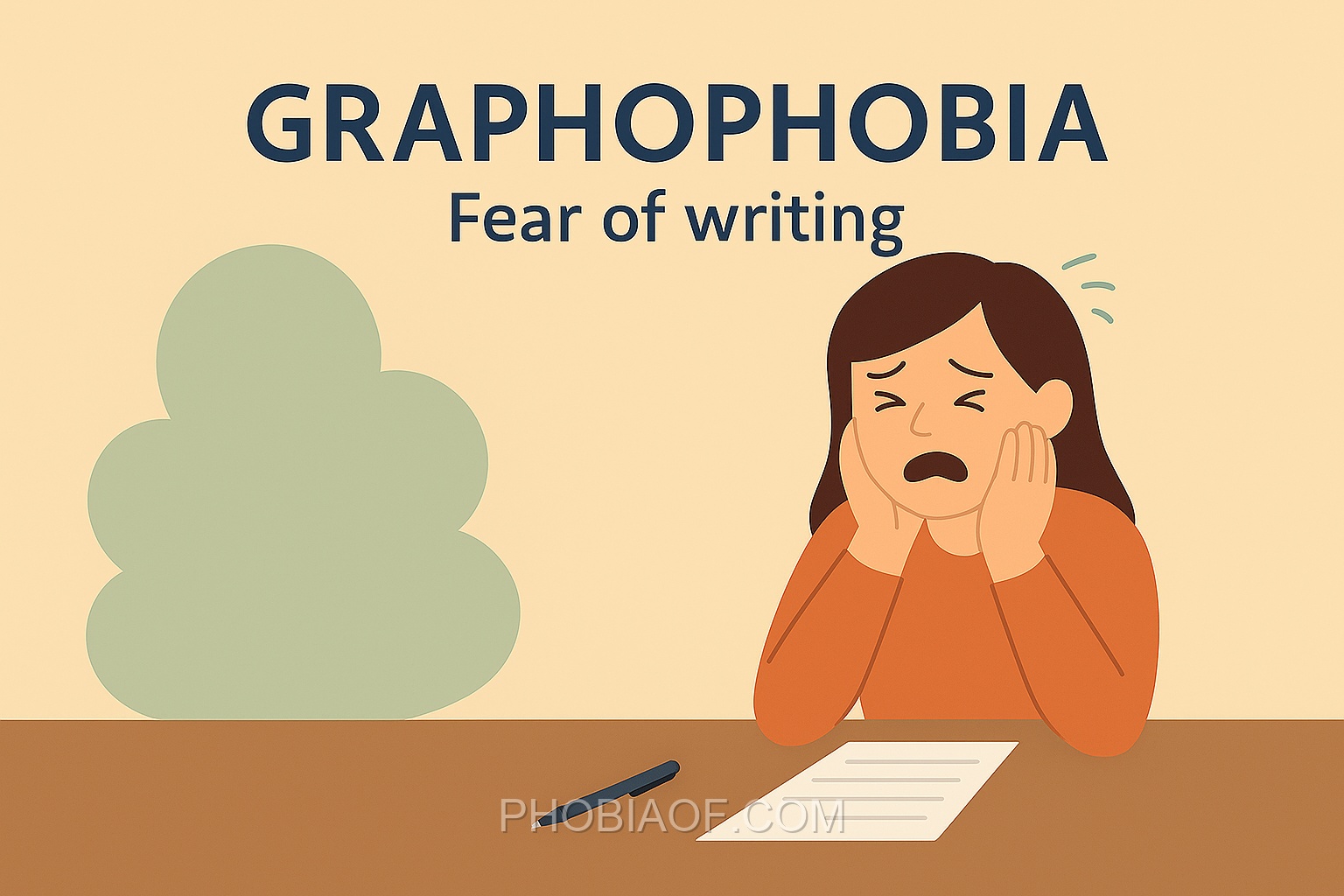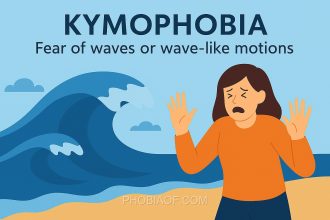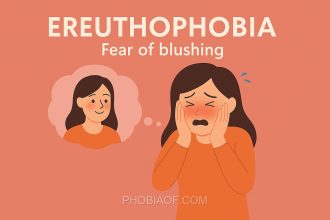Ever felt a wave of anxiety wash over you at the thought of putting pen to paper or fingers to keyboard? You’re not alone. This feeling could be linked to a condition known as Graphophobia, which is the fear of writing.
Graphophobia, derived from the Greek words “grapho” meaning “to write” and “phobos” meaning “fear,” is more than just a reluctance to write. It’s a persistent, irrational fear of writing that can cause significant distress and impact one’s ability to communicate through written words.
For those affected by graphophobia, the fear can manifest in various ways:
- Feeling anxious or panicked at the thought of writing.
- Avoiding tasks that involve writing, whether in personal, academic, or professional settings.
- Experiencing physical symptoms such as sweating, trembling, or a rapid heartbeat when faced with a writing task.
Understanding and addressing graphophobia with empathy is crucial, as writing is an integral part of daily life. Whether it’s jotting down a note, drafting an email, or composing a report, overcoming this fear can lead to increased confidence and improved communication skills. If you or someone you know struggles with graphophobia, remember that there are ways to manage this fear and support is available.
Causes of Graphophobia
Graphophobia, or the fear of writing, can be a debilitating condition that affects individuals in various aspects of life. Understanding its potential causes can help in managing and overcoming this fear. Here are some common reasons why someone might develop graphophobia:
- Genetic Predisposition: Just like many other phobias, genetic factors can play a role in the development of graphophobia. Individuals with a family history of anxiety disorders or specific phobias may be more prone to experiencing a fear of writing.
- Traumatic Experiences: Negative or traumatic experiences related to writing can lead to graphophobia. This could include harsh criticism from teachers or peers, public embarrassment, or a particularly stressful writing assignment. Such experiences can leave a lasting impact, making the act of writing anxiety-inducing.
- Learned Behavior: Observing others who express fear or anxiety about writing can influence one’s own feelings towards it. If a child grows up in an environment where writing is portrayed as a stressful or negative activity, they may internalize this attitude and develop a fear of writing themselves.
- Psychological Factors: Underlying psychological conditions such as generalized anxiety disorder, perfectionism, or low self-esteem can contribute to graphophobia. The fear of making mistakes or being judged can amplify anxiety around writing tasks.
- Environmental Factors: High-pressure environments, such as academic settings with strict deadlines and high expectations, can exacerbate the fear of writing. The pressure to perform well can trigger anxiety in individuals who are already predisposed to fear writing.
In addition to these causes, some interesting theories suggest that graphophobia might also be linked to broader social pressures or cultural attitudes towards literacy and expression. Research continues to explore these aspects to better understand and treat this condition.
Symptoms of Graphophobia
Graphophobia, or the fear of writing, can cause intense fear or anxiety in those who experience it. This phobia can manifest in both physical and emotional/behavioral symptoms, making everyday tasks daunting. Understanding these symptoms can be the first step toward seeking help and finding relief.
Common Physical Symptoms:
- Panic attacks, characterized by sudden, intense fear and discomfort.
- Sweating, often excessive and not related to physical exertion.
- Rapid heartbeat or palpitations, which may feel like the heart is racing.
- Trembling or shaking, particularly when faced with the prospect of writing.
- Shortness of breath or a feeling of being unable to catch one’s breath.
- Nausea or stomach discomfort, which can occur when thinking about or attempting to write.
Emotional/Behavioral Symptoms:
- Overwhelming dread or anxiety at the thought of writing, leading to significant distress.
- Avoidance of situations where writing might be required, such as meetings or classes.
- Difficulty focusing or thinking clearly when faced with a writing task.
- Feelings of embarrassment or shame about the inability to write, which can lead to social withdrawal.
- Procrastination or making excuses to avoid writing tasks.
When severe, these symptoms can significantly interfere with daily life, affecting both personal and professional aspects by limiting one’s ability to communicate effectively through writing.
Treatment for Fear of Writing (Graphophobia)
Overcoming the fear of writing, known as graphophobia, is entirely possible with the right approach and dedication. If you’re experiencing this phobia, it’s important to remember that you are not alone, and there are effective treatments and coping strategies available to help you manage and eventually overcome your fears.
Proven Therapies
- Exposure Therapy: This therapy involves gradually facing your fear in a controlled and safe environment. By slowly increasing your exposure to writing tasks, you can desensitize yourself to the fear response and build confidence over time.
- Cognitive-Behavioral Therapy (CBT): CBT focuses on identifying and changing negative thought patterns that contribute to your fear. By challenging these thoughts and replacing them with more positive and realistic ones, you can reduce anxiety associated with writing.
- Counseling: Speaking with a therapist or counselor can provide support and guidance as you work through your fear. They can offer personalized strategies and encouragement to help you overcome graphophobia.
Self-Help Coping Techniques
- Relaxation Exercises: Techniques such as deep breathing, progressive muscle relaxation, and visualization can help calm your mind and reduce anxiety before writing.
- Meditation: Regular meditation practice can improve your overall mental well-being and make it easier to manage stress and fear related to writing.
- Support Groups: Joining a support group can provide a sense of community and shared experience. Connecting with others who understand your fear can be incredibly validating and motivating.
Medication
In some severe cases, medication such as anti-anxiety medications might be considered to help manage symptoms. However, it’s important to focus on therapy and coping skills as primary treatment methods.
If graphophobia is interfering with your daily life, it is highly encouraged to seek professional help. A mental health professional can guide you through the process of overcoming this fear, offering tailored support and strategies to help you succeed.
Remember, with time, patience, and the right approach, you can conquer your fear of writing and unlock your potential. Don’t hesitate to take the first step towards a more confident and fulfilling life.
Conclusion
Understanding the causes and symptoms of graphophobia is a crucial step towards addressing this fear effectively. Recognizing the underlying triggers can empower individuals to take proactive measures in managing their phobia. By acknowledging the emotional and psychological barriers that contribute to the fear of writing, individuals can begin to dismantle these obstacles, paving the way for healing and growth.
It is important to remember that overcoming or managing phobias is a journey that many people successfully undertake. With time, patience, and the right support, it is possible to diminish the grip of graphophobia. Seeking help through therapy or consulting with a healthcare professional can provide valuable guidance and strategies tailored to individual needs.
Take action: If the fear of writing is impacting your life, consider reaching out to a therapist or talking to a doctor for support. By doing so, you are taking a significant step towards regaining control and finding comfort in writing once more. Remember, you are not alone, and with determination and assistance, you can overcome this challenge.
Stay hopeful and informed about your journey, knowing that many have walked this path and emerged stronger, more confident, and ready to express themselves freely.






